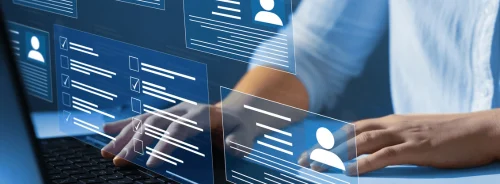Two mobile applications that allow patients to track heart health from home have recently been approved by the US Food and Drug Administration (FDA). These mobile apps are from two Silicon Valley startups, AliveCor and Vital Connect, according to an EIN News article.
AliveCor said it has obtained the FDA's approval to detect serious heart conditions in real-time electrocardiogram (ECG) readings taken from a mobile device. The company's newly-approved algorithm can detect atrial fibrillation (AF), a common form of cardiac arrhythmia that affects about 25 percent of all adults over the age of 40, which increases their susceptibility to having a stroke.
When the smartphone-based tool detects an abnormality, AliveCor said, a care provider could intervene before the patient experiences a stroke or other life-threatening event. The heart-monitor device, which fits most smartphones, can be placed onto a patient's chest or finger to record an ECG.
AF is difficult to identify, according to Euan Thomson, AliveCor's chief executive. "A large group of people have it, but don't know they have it." AliveCor's new device can detect the condition and transmit the data wirelessly to a cardiologist for analysis, Thomson explained.
The company is working to incorporate this algorithm into its application and hopes to make the apps available in the market by September of this year.
In 2010, about 129.8 million people visited the emergency room and 13 percent of these visits resulted in hospital readmission, according to the Centers for Disease Control. "By getting an intelligent device in the hands of a patient, we hope to fulfil the vision for mobile health," Thomson said.
New Patch for Viewing Biometric Data
Meanwhile, Vital Connect said it had the FDA's nod for a band-aid sized patch that patients can place onto their chest and view their own biometric data on a mobile device. The "HealthPatch MD" has sensors that can track heart rate, respiratory rate, pulse variability, skin temperature, "fall" detection, and more.
What is good about the device is that it puts the data in context, said Valeska Schroeder, vice president of product management at Vital Connect. When a patient's heartbeat spikes while they are lying flat in bed, that is usually a worrisome sign. During exercise or a fall, however, an increase in heart rate is a normal occurrence. If they opt in, Shroeder said, physicians are alerted when their patients hit or exceed set thresholds.
Vital Connect first made the headlines when technology giant Apple recruited one of its senior executives, Ravi Narasimhan. The move was part of Apple's larger effort to hire talent from the medical field. "We know we are working in a hot market," Schroeder noted."We know other firms are interested in making related products."
While rival companies are adopting different approaches, they share the same goal: to help doctors track patients remotely and take steps to prevent fatal outcomes. Data may also inform doctors about whether their patients should schedule an in-person or emergency room visit, Schroeder added.
Source: EINNews.com
Image Credit: Pixabay.com
AliveCor said it has obtained the FDA's approval to detect serious heart conditions in real-time electrocardiogram (ECG) readings taken from a mobile device. The company's newly-approved algorithm can detect atrial fibrillation (AF), a common form of cardiac arrhythmia that affects about 25 percent of all adults over the age of 40, which increases their susceptibility to having a stroke.
When the smartphone-based tool detects an abnormality, AliveCor said, a care provider could intervene before the patient experiences a stroke or other life-threatening event. The heart-monitor device, which fits most smartphones, can be placed onto a patient's chest or finger to record an ECG.
AF is difficult to identify, according to Euan Thomson, AliveCor's chief executive. "A large group of people have it, but don't know they have it." AliveCor's new device can detect the condition and transmit the data wirelessly to a cardiologist for analysis, Thomson explained.
The company is working to incorporate this algorithm into its application and hopes to make the apps available in the market by September of this year.
In 2010, about 129.8 million people visited the emergency room and 13 percent of these visits resulted in hospital readmission, according to the Centers for Disease Control. "By getting an intelligent device in the hands of a patient, we hope to fulfil the vision for mobile health," Thomson said.
New Patch for Viewing Biometric Data
Meanwhile, Vital Connect said it had the FDA's nod for a band-aid sized patch that patients can place onto their chest and view their own biometric data on a mobile device. The "HealthPatch MD" has sensors that can track heart rate, respiratory rate, pulse variability, skin temperature, "fall" detection, and more.
What is good about the device is that it puts the data in context, said Valeska Schroeder, vice president of product management at Vital Connect. When a patient's heartbeat spikes while they are lying flat in bed, that is usually a worrisome sign. During exercise or a fall, however, an increase in heart rate is a normal occurrence. If they opt in, Shroeder said, physicians are alerted when their patients hit or exceed set thresholds.
Vital Connect first made the headlines when technology giant Apple recruited one of its senior executives, Ravi Narasimhan. The move was part of Apple's larger effort to hire talent from the medical field. "We know we are working in a hot market," Schroeder noted."We know other firms are interested in making related products."
While rival companies are adopting different approaches, they share the same goal: to help doctors track patients remotely and take steps to prevent fatal outcomes. Data may also inform doctors about whether their patients should schedule an in-person or emergency room visit, Schroeder added.
Source: EINNews.com
Image Credit: Pixabay.com
Latest Articles
atrial fibrillation, healthcare IT, AF, mobile technology, cardiac arrhythmia
Two mobile applications that allow patients to track heart health from home have recently been approved by the US Food and Drug Administration (FDA). These...










